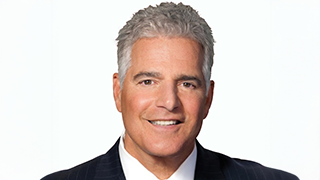Marketing Professor Explores Impact of Tariffs on Economy With Emmy Award-Winning Broadcaster
Tuesday, April 29, 2025

Héctor R. Lozada-Vega, Ph.D.
Héctor R. Lozada-Vega, Ph.D., director of the Institute for International Business at the Stillman School of Business, recently discussed what tariffs are and their impact on consumers and businesses
in the United States, with Steve Adubato, author, speaker and Emmy Award-winning broadcaster
of PBS State of Affairs.
Associate Professor of Marketing, Lozada-Vega is co-author along with Stillman School
colleagues Richard J. Hunter Jr. and John H. Shannon of a chapter in Archives of Business Research 7 (3), March 2019, 76-86, Society for Science and Education, on “Making Sense Out of U.S. Trade Policy or High-Stakes Poker Game? ‘I’ll see your
tariff, and I’ll raise you one of my own!’”
On this episode of PBS State of Affairs, he shared the history of tariffs and how they can pose both significant challenges and opportunities for companies to build more resilient and efficient global business strategies. They reshape global trade relationships, influencing the formation of new trade blocs and alliances.
Companies are reevaluating long-standing supply networks and seeking partnerships in countries with free trade agreements to gain a semblance of predictability in an otherwise volatile market landscape.

Steve Adubato, Ph.D.
Adubato and Lozada-Vega looked at how tariffs on goods like electronics, produce and automobiles increase business costs, which are then reflected in higher consumer prices. Businesses would need to reconfigure supply chains to better handle them, which can also drive costs up. Tariffs also contribute to inflationary pressures and reduced economic output, affecting GDP and employment.
Adubato and Lozada-Vega explored the effectiveness of tariffs as a negotiating tool and whether a trade war could be coming.
The bottom line for New Jerseyans, according to Lozada-Vega:
For New Jersey, I can tell you what it will mean, an estimated $5 billion in an effective increase in collection of monies from consumers so that's five billion. [Products] including cars and steel would be the first thing that tariffs will be imposed on. But what people forget is that phones and all those electronics will take a hit. Most importantly is food stuffs, all of the everyday items that we consume. About 72 percent of all the produce and fruit that we consume in the United States comes from Mexico. All that is going to be taxed and that increases anywhere from two to five percent.
Lozada-Vega noted that he wanted to remain optimistic about this strategy,
The problem is that in the short term especially this is a regressive tax on the people who depend the most on access to some of these everyday items. They are the ones who are going to be paying the most into it. Long term, I don’t know.
The entire episode of "State of Affairs: Explaining Tariffs and Their Impact on U.S. Business" is available here.
Categories: Business






